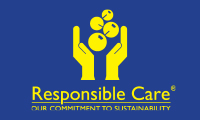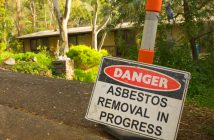Following union protests over engineered stone and its association with silicosis, a debilitating and potentially fatal disease, Safe Work Australia is recommending the government prohibits its use

Safe Work Australia has published the Decision Regulation Impact Statement: Prohibition on the use of engineered stone (Decision RIS). It comes after protests were held by the Construction, Forestry, Maritime, Mining and Energy Union (CFMEU) there, calling for the ban of engineered stone.
The Decision RIS was developed by Safe Work Australia at the request of WHS ministers and was informed by stakeholder consultation, independent economic analysis, and an expert review of evidence.
The Decision RIS recommends a prohibition on the use of all engineered stone, irrespective of crystalline silica content, to protect the health and safety of workers.
The recommendation for a prohibition is based on the following:
- Engineered stone workers exposed to respirable crystalline silica (RCS) are significantly over-represented in silicosis cases. Engineered stone workers are being diagnosed with silicosis at a much younger age than workers from other industries.
- Engineered stone is physically and chemically different to natural stone. The high levels of RCS generated by working with engineered stone, as well as the differing properties of this RCS, are likely to contribute to more rapid and severe disease.
- There is no toxicological evidence of a ‘safe’ threshold of crystalline silica content in engineered stone, or that other chemicals found in engineered stone do not pose a health risk to workers.
- Silicosis and silica-related diseases are preventable. However, a persistent lack of compliance with, and enforcement of, the obligations imposed under WHS laws across the engineered stone industry at all levels have not protected workers from the health risks associated with RCS.
Safe Work Australia provided the Decision RIS to Commonwealth, state and territory work health and safety (WHS) ministers on 16 August 2023 for their consideration.
While WHS ministers are yet to make a decision on the recommendation in the Decision RIS to prohibit the use of all engineered stone, they have agreed Safe Work Australia publish the Decision RIS ahead of their decision.
This Decision RIS builds on the evidence and analysis previously considered by WHS ministers in, and should be read in conjunction with, the Decision Regulation Impact Statement: Managing the risks of respirable crystalline silica at work.
The Decision Regulation Impact Statement: Prohibition on the use of engineered stone, and responses to the public consultation can be downloaded from the Safe Work Australia website.
The timing of a decision by WHS ministers on the prohibition on the use of engineered stone is a matter for government.
The Australian Unions movement has resolved to support the ban announced by the CFMEU and take all necessary steps to end the use engineered stone by the middle of next year, if government bans are not in place by then.
This will mean union members will not allow engineered stone to be imported, manufactured or used in Australia.
These actions will protect the thousands of workers who currently work with this deadly fashion item and who are exposed to high levels of silica dust, the movement says.
“In some states as many as 1 in 4 stonemasons who have undergone health screening have been found to have the incurable, debilitating and sometimes fatal lung disease silicosis.
“The reality is that workers have lost their lives after contracting silicosis from working with the deadly fashion products.
“It’s time to draw a line in the sand and ban the use of deadly engineered stone products. Workers’ lives are on the line.
“This is something every unionist needs to get behind, because the right to a safe workplace is fundamental, no matter what your job is.”
Since the first case of silicosis associated with engineered stone was reported in 2015, the numbers of diagnoses has risen dramatically.
While silicosis cases have been found in workers across a range of industries and work silica-containing materials, a disproportionate number of silicosis diagnoses have emerged from those working specifically with engineered stone.
In 2021, a National Dust Disease Task Force report found nearly one in four workers exposed to dangerous levels of silica dust from engineered stone have been diagnosed with silicosis and other silica-related diseases.
“It doesn’t have to be this way. Knowing what we know now, there is no justification for the continued use of engineered stone and other dangerous silica products.,” the union movement says.
“The union movement earlier this year welcomed greater regulations on the manufacture and use of silica-based products, but as the evidence shows, there is no safe level of silica when it comes to engineered stone and the threat it poses to workers.
“If the government doesn’t ban this deadly product, then, as unionists, we have the responsibility to take mobilise and take matters into our own hands to save workers lives – and that’s exactly what we’ll do.
“In practical terms, this means union members involved at any point of the supply chain will refuse to so much as touch an engineered stone product.
“Whether it’s taking deliveries on the wharf, transporting materials by truck, or installing engineered stone on a worksite – unionists will stand their ground in solidarity with stonemasons, because it’s the right thing to do.”







